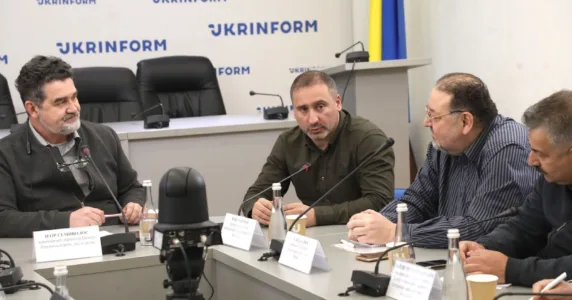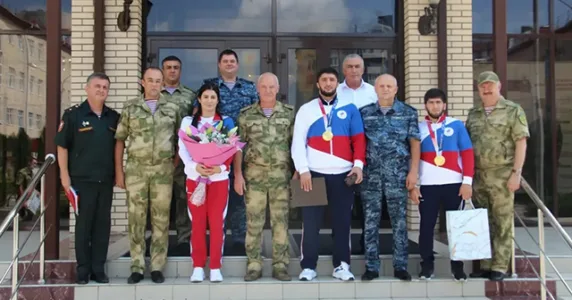Navigation and useful materials
Russian information operations in the European Union remain a serious security concern for the region. These operations are part of a broader strategy to influence, divide, and undermine the stability of Western democracies. Russian narratives in the EU have historically focused on several key areas: undermining trust in EU institutions, exacerbating political divisions, spreading disinformation related to security and defence policies, and influencing public opinion on issues such as energy dependence and sanctions.
Objectives of Russian information operations in EU countries
Russian information operations have the following objectives in influencing EU politics and society, in particular:
- Political polarization. By spreading contradictory narratives and exploiting existing social problems, Russian information operations contribute to political polarization in EU member states, which can lead to an increase in social tension and undermine confidence in democratic institutions.
- Election interference: There have been numerous instances of Russian interference in EU elections through cyberattacks, disinformation campaigns, and hacking and information leakage operations. These actions are intended to undermine the democratic process and sow doubt about the legitimacy of election results.
- Undermining unity: By targeting individual EU member states with special information operations, Russia seeks to weaken solidarity between member states and impede the EU’s ability to act collectively on issues of common interest. This can exacerbate disputes between member states on different policy issues and complicate efforts to address common challenges.
- Manipulating the media landscape. Through targeted disinformation campaigns, Russia is shaping public discourse on certain issues in the EU, while undermining the credibility of traditional news sources and promoting its own narrative about international events.
Russian information operations in the EU countries
Information operation on the war of Russia against Ukraine. The narratives of this information operation include justifying Russia’s war against Ukraine, discrediting Ukraine, and undermining military assistance to Ukraine from Western partners.
Russia is spreading misleading information about the conflict in Ukraine, portraying the Ukrainian government as the aggressor and distorting the facts to justify its own actions. A separate narrative is also represented by pseudo-historical narratives, such as: “Ukraine is a failed state.”
The same narratives were repeated by the President of Russia in his recent interview with Tucker Carlson.

Blackmail and threatening European countries to use nuclear weapons. Russia intimidates European countries with “the use of nuclear weapons” and “the inevitability of World War III.” The use of nuclear weapons is also mentioned in the context of the condition “if Russia loses, it will use nuclear weapons.”
At the same time, for the “full picture,” the Kremlin propaganda itself invented threats and blackmail on the part of Western countries. For example, “The West will use nuclear weapons against Russia.”
In fact, neither the U.S. nor the EU nor NATO have ever threatened Russia with nuclear weapons. In addition, on June 23, 2022, 65 countries that ratified the Treaty on the Prohibition of Nuclear Weapons adopted a joint declaration in Vienna condemning Russian nuclear threats.
The North Atlantic Alliance officially considers Russia the most significant and direct threat to the security of the Alliance’s member states and peace and stability in the Euro-Atlantic region. This is stated in the updated strategic concept, which NATO adopted at the summit in Madrid on June 29, 2022.
“The Russian Federation is modernising its nuclear forces and expanding its novel and disruptive dual-capable delivery systems, while employing coercive nuclear signalling. It aims to destabilise countries to our East and South,” the Alliance believes.
Poland and Lithuania are among those European countries in Russian narratives that are called the next target of Russia’s attack. Russia sometimes threatens to attack “NATO countries” in general.
Poland has repeatedly received such threats since the beginning of Russia’s full-scale invasion of Ukraine. Thus, back in May, Oleg Morozov, the Chairman of the State Duma Committee on Control, said that “the Polish authorities, with their statements, are forcing Russia to put Poland ‘in line for denazification.”

The Kremlin propaganda is trying to drive a wedge between European countries. According to Russian propagandists and according to their reports in local channels of European countries, Lithuania, Poland, the EU, the United States, and Ukraine allegedly “prolong the war and lead to its escalation.”
Russia also occasionally spreads messages depicting Ukraine as a “dangerous enemy of Europe.” For example, “Ukraine will attack the EU after it wins the war with Russia.”
At the same time, Russia constructs the image of the EU as “an organization that should not be trusted” because, according to propaganda channels, “the West will sacrifice Eastern Europe if the war spreads there” or “the West will fall.”
Discrediting campaign against Ukrainian refugees. The campaign to discredit Ukrainian refugees began almost immediately after the full-scale invasion.
Among citizens of the states hosting refugees, propaganda spreads traditional anti-migrant messages about social parasitism, rising crime rates, cheap labour engaged in dumping in the labour market, “insurmountable” cultural differences between the citizens of Ukraine and the EU countries and related conflicts. Due to the fact that these messages do not correlate with reality, propaganda actively uses blatant fakes. As far as the inhabitants of the Global South are concerned, Russian propagandists call the friendly attitude to Ukrainians “white racism,” contrasting Ukrainian refugees with migrants from Africa and the Middle East.
Campaigns to discredit Ukrainian refugees are part of Russia’s information war. The Kremlin is trying to raise the level of anti-Ukrainian hysteria among Russians and strengthen support for the war of conquest, demoralize and disorient Ukrainians, as well as reduce the level of support for Ukraine in the West.
The key task of propaganda targeting citizens of European countries is to convince the audience that the influx of refugees from Ukraine will negatively affect the well-being and safety of local residents. Negative attitude towards Ukrainians should be transformed into negative attitude towards Ukraine as a whole and affect the level of its support. To do this, the following messages are distributed:
- Ukrainians are a burden for taxpayers;
- the government cares about refugees more than its own citizens;
- Ukrainians behave insolently, spoil property, and commit crimes against locals:
- Ukrainians are carriers of dangerous diseases and can infect locals.
The channels for distributing these messages are social networks, Telegram channels, Russian information resources (in particular, the network of websites of the Sputnik news agency), as well as dubious sites. From time to time, local tabloids become the source of “hot” news. Published in December, a Daily Mail article about a Birmingham resident who accused a Ukrainian refugee of attempted rape was actively covered by Russian propagandists and Telegram channels. Law enforcement officers did not find evidence of this crime: this is directly stated in the article, but the Russians ignored such a nuance.

Election interference: Russia participates in various forms of influence operations, including elections in Western countries.
Russia’s interference in foreign elections is not something new. The Kremlin has a history of using disinformation, propaganda, cyberattacks, and other tactics to interfere in democratic processes around the world. The 2016 U.S. presidential election and the Brexit referendum in the UK are prime examples of Russia’s interference in Western democracies.
Key objectives of Russian influence operations in the context of elections include:
- EU destabilization: Russia seeks to exploit existing divisions within the EU, exacerbating social and political tensions. By undermining the unity of EU member states, Russia seeks to weaken the bloc’s ability to act coherently on issues important to Moscow.
- Promotion of pro-Russian candidates: Through disinformation campaigns and propaganda efforts, Russia seeks to enhance the prospects of political candidates heeding Russian interests. This may include spreading false information about competitors or parties in order to sway public opinion in favour of pro-Russian figures.
- Undermining trust in democratic institutions. Another key goal of Russian influence operations is to undermine trust in democratic institutions and sow doubt about the legitimacy of electoral processes. By questioning the integrity and transparency of elections, Russia can create a sense of chaos and uncertainty among voters.
The effectiveness of these narratives and their perception in EU member states varies depending on the local political climate, the level of media literacy among the population, and the effectiveness of EU efforts to counter disinformation.
If you have found a spelling error, please, notify us by selecting that text and pressing Ctrl+Enter.



